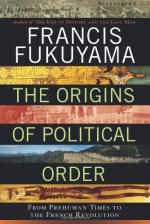
|
| Name: _________________________ | Period: ___________________ |
This test consists of 15 multiple choice questions and 5 short answer questions.
Multiple Choice Questions
1. When did the major powers face growing demands for military expenditures?
(a) 14th century on.
(b) 13th century on.
(c) 12th century on.
(d) 15th century on.
2. When did the Iranian Islamist revolution take place?
(a) 1978.
(b) 1977.
(c) 1979.
(d) 1976.
3. What is kanunname derived from?
(a) Roman law.
(b) Canon law
(c) Papal law.
(d) French law.
4. What problem did the Chinese not solve?
(a) The bad emperor problem.
(b) The good emperor problem.
(c) The evil emperor problem.
(d) The incompetent emperor problem.
5. When did the Supreme Court rule on the Lochner v. New York case?
(a) 1895.
(b) 1925.
(c) 1905.
(d) 1915.
6. When did the Moorish bastion of Grenada fell?
(a) 1562
(b) 1326.
(c) 1512.
(d) 1492.
7. What did Pollock and Maitland write about the king?
(a) That he was not allowed to pass laws.
(b) That he would not bow to the law.
(c) That he was not the law.
(d) That he was not above the law.
8. Who gave the definition of institutions as "stable, valued, recurring patterns of behavior"?
(a) Ray Huang.
(b) Samuel Huntington.
(c) Koenraad W. Swart.
(d) Francis Fukuyama.
9. When did the Republic of China move to Taiwan according to Chapter 20?
(a) 152.
(b) 1949.
(c) 1956.
(d) 1958.
10. When did Sir Edward Coke die?
(a) 1653
(b) 1532.
(c) 1634.
(d) 1659.
11. When was the Golden Bull put in effect?
(a) 1568.
(b) 1265.
(c) 1349.
(d) 1222.
12. Who are not formally accountable to their people except through a parliament with very limited powers, but have been careful to attend to the demands of the various groups that make up the country?
(a) Syrian leaders.
(b) Jordan Kings.
(c) Iran leaders.
(d) Lybian leaders.
13. When was the Table of Ranks put in place in Russia?
(a) 1798.
(b) 1756.
(c) 1722.
(d) 1743
14. Where was the old Teotihuacán city located?
(a) Brazil.
(b) Mexico.
(c) Equator.
(d) Honduras.
15. When did Mátyás Hunyadi die?
(a) 1498.
(b) 1569.
(c) 1490.
(d) 1423.
Short Answer Questions
1. When was the Duma reinstated after Peter the Great?
2. When did Napoleon win at Jena-Auerstadt?
3. When did the Catholic Church declare its independence from secular authorities?
4. What emerged as a a result of lineages need to place to bury their ancestors and appease the souls of the dead according to Chapter 29?
5. When was "Political Order in Changing Societies" published according to Chapter 30?
|
This section contains 322 words (approx. 2 pages at 300 words per page) |

|




